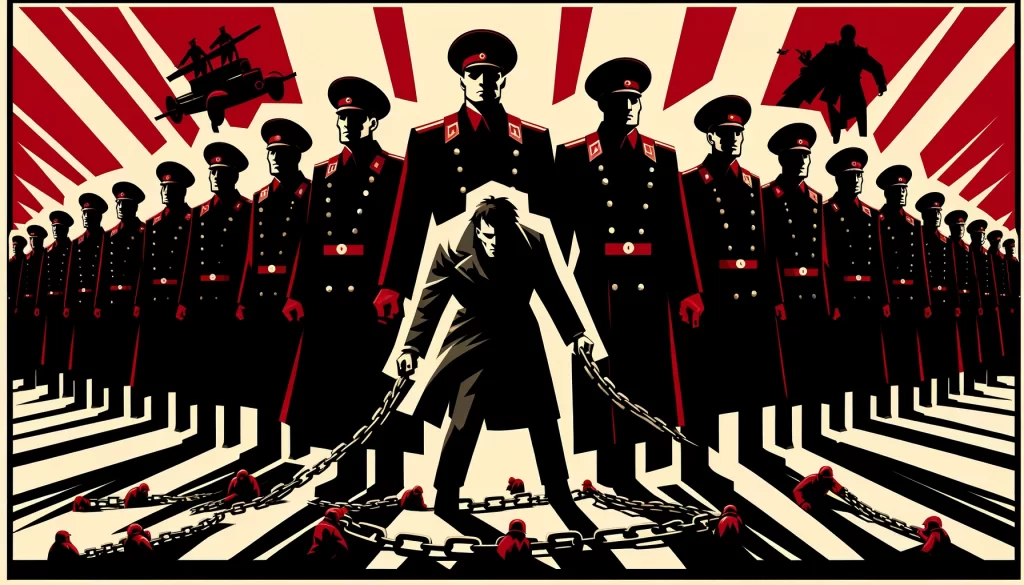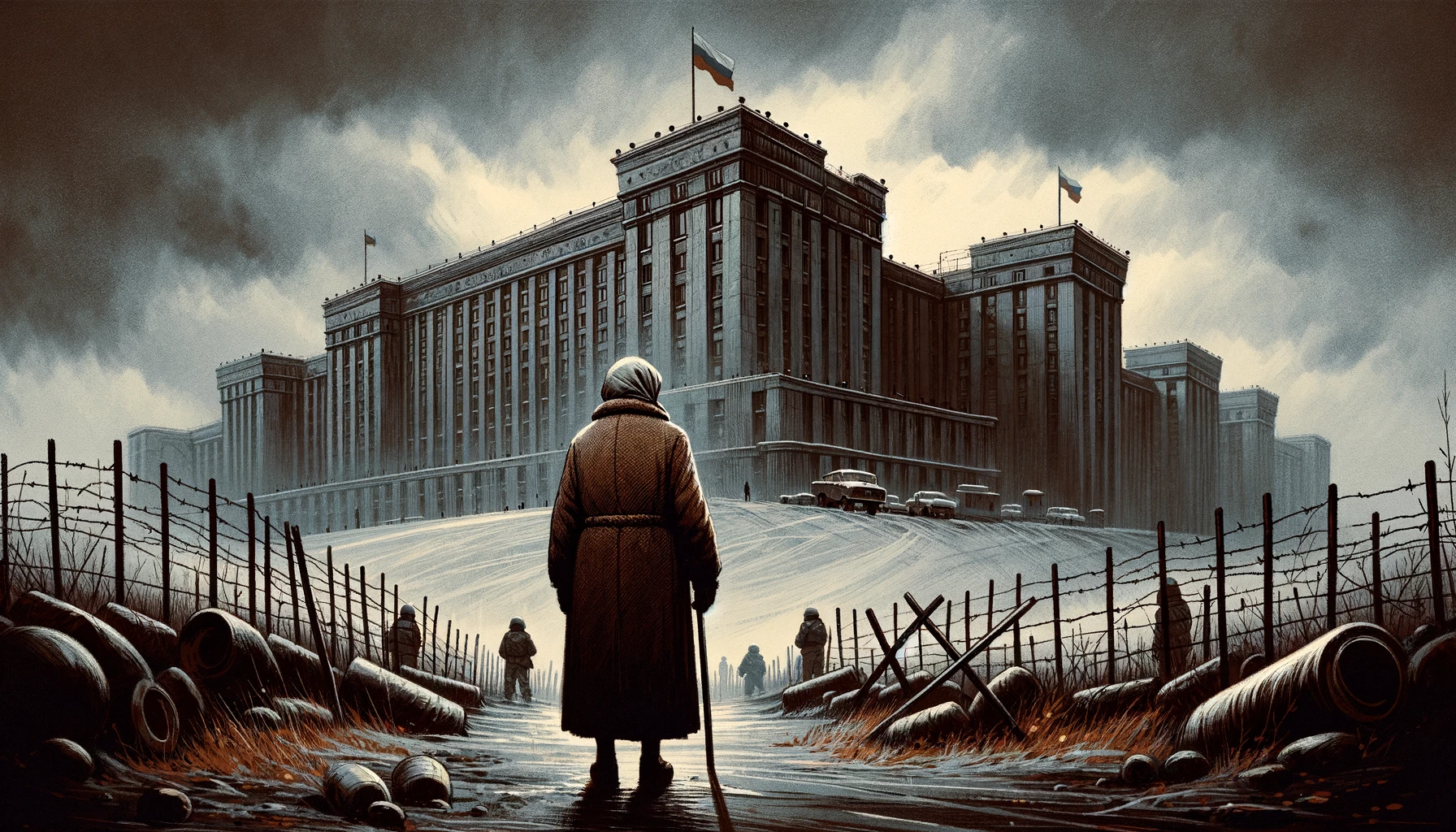In a recent event that has drawn widespread attention both within Russia and internationally, the family of Alexei Navalny, a prominent Russian opposition leader, has been engaged in a determined struggle to reclaim his body following his untimely death. Navalny, known for his outspoken criticism of the Russian government and his advocacy for a democratic Russia, tragically passed away at the age of 47 while serving time in a prison located in the harsh conditions of the Yamalo-Nenets region, north of the Arctic Circle.
For over a week, Navalny’s mother, Lyudmila Navalnaya, faced considerable challenges in her efforts to recover her son’s body. The political climate in Russia, marked by its stringent control over dissent and opposition, only compounded the difficulties she encountered. Despite these obstacles, a significant public outcry, including video appeals from Russian celebrities, artists, activists, and journalists to President Vladimir Putin, and a petition signed by more than 98,000 Russians, highlighted the widespread support for the Navalny family.
Navalny’s daughter, Dasha Navalnaya, also made a heartfelt appeal on social media, expressing her desire for her grandmother to be given her father’s body. This collective call for action eventually led to a breakthrough, with Navalny’s body being released to his family. However, the uncertainty surrounding the arrangements for his funeral remains, with his mother expressing a wish for a public farewell service in Moscow, a tradition in Russia, and burial at the Troyekurovskoye cemetery, a final resting place for many of Russia’s notable figures.
The Russian government initially suggested a private funeral, with attendance limited to family members, a proposition that was met with resistance from Navalny’s family. Kira Yarmysh, Navalny’s press secretary, acknowledged the support from thousands of Russians in their campaign to recover Navalny’s body and highlighted the ongoing uncertainty about the funeral’s execution.
Navalny’s death has sparked significant controversy, with his widow, Yulia Navalnaya, accusing President Putin of being responsible for her husband’s demise and alleging that the delay in releasing his body was an attempt to obscure the cause of death, which was officially listed as “natural causes.” This accusation points to the broader implications of Navalny’s death, touching upon issues of political freedom, human rights, and the rule of law in Russia.

The circumstances surrounding Navalny’s death and the subsequent battle over his body underscore the challenges faced by opposition figures in Russia. Navalny’s life and work, dedicated to advocating for a free and democratic Russia, have left a lasting impact, symbolized by the struggle over his final resting place. His family’s determination to honor his legacy, despite the pressures and threats from Russian authorities, reflects a broader struggle for dignity, remembrance, and the right to mourn.
This situation also reveals the complexities of navigating the Russian political system for those who challenge it. The efforts to secure a public funeral for Navalny and to allow his gravesite to become a place of homage demonstrate the importance of memory and legacy in the fight for political change.
As this story continues to unfold, it serves as a poignant reminder of the personal costs associated with political activism and the enduring struggle for democracy and human rights. The global community watches closely as Navalny’s family, friends, and supporters navigate these challenges, seeking to honor his memory and continue his legacy of advocating for a more open and democratic Russia.
This article is based on the following article:
https://www.washingtonpost.com/world/2024/02/24/alexei-navalny-body-russia-burial/

Background Information
Understanding these background elements can help the reader grasp the complexities of the situation surrounding Alexei Navalny’s death, the significance of the public campaign for his body, and the broader implications for political opposition and human rights in Russia.
1. Who Was Alexei Navalny?
Alexei Navalny was a Russian lawyer and political activist known for his opposition to the Russian government under President Vladimir Putin. He gained prominence through his anti-corruption investigations, which he disseminated through blogs and social media, targeting high-ranking Russian officials and business elites. Navalny also ran for office, including a bid for Mayor of Moscow in 2013, and founded the Anti-Corruption Foundation to further his investigations and promote transparency.
2. Political Opposition in Russia
In Russia, political opposition refers to individuals and groups that oppose the policies or actions of the sitting government or ruling party. This opposition has faced significant challenges, including legal restrictions, censorship, and sometimes violent reprisals. The Russian government, under Putin, has been criticized internationally for its treatment of political dissidents, including imprisonment and alleged poisonings.
3. The Role of Social Media and Public Campaigns
Social media platforms, like X (formerly Twitter), play a crucial role in modern activism, allowing for the rapid dissemination of information and the organization of campaigns. In authoritarian regimes, these platforms can be vital for opposition figures to communicate with their supporters and the international community, as traditional media outlets may be controlled or influenced by the government.
4. Russian Legal and Prison System
The Russian legal and prison systems are often criticized for their lack of transparency, harsh conditions, and the use of legal proceedings to silence or punish political opponents. The “Polar Wolf” prison where Navalny was held is an example of a remote prison facility where conditions are particularly severe, located far from major cities and beyond easy reach of family, lawyers, and the media.
5. Cultural and Traditional Practices in Russia
The article mentions a public farewell service and burial at the Troyekurovskoye cemetery, a practice common in Russia for honoring prominent figures. Understanding these cultural aspects helps contextualize the family’s wishes for Navalny’s funeral and the significance of the burial site, which is reserved for notable individuals in Russian society.
6. International Relations and Human Rights
Navalny’s case has drawn international attention, highlighting concerns about human rights and political freedoms in Russia. The global response, including sanctions from Western countries and statements from international human rights organizations, reflects the broader geopolitical tensions between Russia and other nations over democracy and human rights issues.
Please subscribe to Insight Fortnight, our biweekly newsletter!
